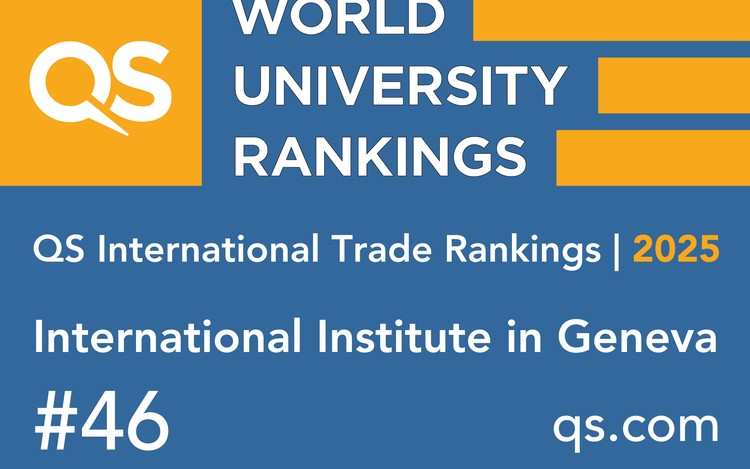Course Descriptions
-
ECO 610 – Global Economics & Development This course aims to examine the working of a national economy and the critical role that businesses play in it. It provides insights into the workings of economic policy and the issues discussed in current policy debates. It studies business cycles and the impact of policies on short-term fluctuations. It then turns to the longer term by examining economic growth and its drivers. It studies development and the strategies pursued by successful developing countries. It analyses the Sustainable Development Goals and contributes to a better understanding of the need for multilateral and regional economic cooperation and national economic policies for sustainable development. The course provides an understanding of challenges confronting the global economic order, impacts of the trade and investment policies, the role of financial system and the regional market integration.6.00
-
TRA 630 – Trade and Investment Promotion This course introduces the rationale and constraints of trade and investment promotion policies through familiarizing students with the context of international trade business and institutions, within the increasingly complex scheme of international trade relations. The course develops a solid understanding of how international trade promotion strategies are shaped at country level within TIPOs, and how trade policy choices and priorities are determined. It also develops students’ skills to assess TIPOs’ role and instruments, individually or collectively, and the impact they have on trade and business.6.00
-
MGT 657 – Logistics & Project Management This course provides a systematic overview of design, control and improvement of operations, projects, logistics and supply chain related management issues. It renders the rationale and practices of optimizing the global supply chain and leveraging it as a value-creating strategy to gain competitive advantage in the global marketplace. The project management key success factors will be presented, examined, discussed, and applied by the students on concrete projects. In the meantime, it addresses issues related to sustainability, quality management, and the challenges of establishing trust and collaboration amongst operation partners.6.00
-
FIN 625 – Financial Reporting and Analysis This is an interactive course that provides students with knowledge in financial accounting and enhances practical skills in using financial statements to evaluate value creation of the entity. Combining case discussions of actual companies’ financial statements and rigorous framework (IFRS & US GAAP) this course will enrich students' understanding of accounting tools, skills necessary to critically analyse firms’ actions and expose them to the current business landscape. In a collaborative atmosphere students will not only learn the accounting concepts, how to prepare basic financial statements for incorporated entities and groups of companies but will also discover how to look behind the numbers, gain an understanding of the choices enterprises make in reporting the results of their business activities to be able to analyse financial statements effectively.6.00
-
RES 700 A – Introduction to Research This module is designed to provide students a solid understanding of the research process with a foundation in research methods and techniques. It will introduce students to how to identify research questions, develop hypotheses, design research, and collect and analyze data. Students will also be introduced to different research designs, such as qualitative, quantitative, and mixed-methods approaches.6.00
-
FIN 645 – Corporate Finance & Risk Management This course develops students’ understanding of the core financial dimensions of business and its related key issues in modern corporate world such as cost of capital mergers and acquisitions, IPOs, financial markets, and a glimpse into Financial Technology (FinTech) sector as an emerging industry. A range of risk management tools and techniques will be explored, as will the risk capital requirements for banks. Students should be able to understand the different types of financial institutions, the risk associated with their business, measuring, and managing these risks. The theories are presented within a context, which motivate students and equip them with practical tools for financial decision making and valuation; the skills they will require in their future careers.6.00
-
MGT 630 – Turning Idea to Success Innovation can no longer be viewed as a sideshow. It is the way to do business and a key driver of sustainable growth. This module is designed to help students develop the skills and knowledge necessary to turn innovative ideas into successful businesses. Students will learn the importance of innovation for businesses, different types of innovation, how to identify and evaluate potential business opportunities, develop effective business plans, understand the importance of customer validation in business planning and execute on those plans to achieve their goals. The module will cover key topics such as innovation, business development, and business plan development, with a focus on practical application.6.00
-
TRA 660 – International Trade Law and Policy The Course aims to develop the skills required to engage with international trade principles around their laws and policies. It will provide an opportunity for students to understand the trade issues that are relevant to their surroundings and life. The course aims to familiarize students with major concepts applied in the World Trade Organization and practices of multilateral trading system and regional trade platforms via relevant themes. It will also assist students to develop critical thinking on the analysis of global trade problems, and their causes, and solutions.6.00
-
MGT 620 – Change Management & ESG This course introduces students to organisational design and why, in today’s ever changing macro context, an organisation’s success is dependent on its ability to evolve structures, processes and people in an agile way. Topics include strategy, sustainability, ESG, organisational and individual performance management, leadership and change management.6.00
-
RES 700 B – Research planning and preparation This module is designed to help students to plan and prepare their research projects(Capstone) by developing a clear, concise research proposal with problem statement, key research questions, research methodology, literature review, proposed outcomes. The research proposal forms the ‘gateway’ to the research (Capstone project) itself and the aim is to ensure that students are well planned to implement their Capstone projects.6.00
-
RES 700 C – Research Thesis / Capstone All graduate students at the IIG are entitled to complete a research thesis. Master’s thesis provides an opportunity for students to engage in high-level research focusing on an area of specialization within their program. In their thesis students apply the knowledge they have acquired in the Research Module (Introduction to Research Methodology RES 100A) while exploring the topic of their choice.30.00




.PNG)








